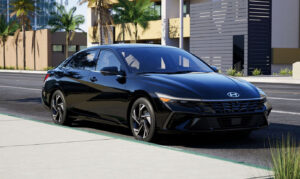Cars are more than just modes of transportation; they are cultural icons that reflect innovation, design, and technological advancements. Over the years, several car brands have become household names, each with its own rich history and unique contributions to the automotive industry. This blog explores the history of some of the most iconic car brands, tracing their origins, milestones, and lasting impact on the world of automobiles.
1. Ford: Revolutionizing Mass Production
Origins
Ford Motor Company was founded by Henry Ford on June 16, 1903. Henry Ford’s vision was to create an affordable car for the masses, and he achieved this with the introduction of the Model T in 1908. The Model T, also known as the “Tin Lizzie,” revolutionized the automotive industry with its affordability, reliability, and ease of maintenance.
Milestones
The most significant milestone for Ford was the development of the moving assembly line in 1913. This innovation drastically reduced production time and costs, making cars more accessible to the average American. By 1927, Ford had produced over 15 million Model T cars, solidifying its place in automotive history.
Impact
Ford’s impact extends beyond just automobiles. The company’s innovations in manufacturing processes laid the groundwork for modern industrial production techniques. Ford’s legacy is also seen in its continued commitment to innovation, with advancements in electric vehicles and autonomous driving technologies.
2. Mercedes-Benz: Pioneers of Luxury and Innovation
Origins
The history of Mercedes-Benz dates back to the late 19th century with Karl Benz’s creation of the first gasoline-powered car, the Benz Patent-Motorwagen, in 1886. The brand Mercedes-Benz was officially established in 1926 following the merger of Karl Benz’s and Gottlieb Daimler’s companies.
Milestones
Mercedes-Benz has a long history of technological firsts, including the introduction of the first diesel-powered passenger car in 1936 and the first car with crumple zones in 1959. The brand is also known for its luxurious vehicles and has been a symbol of prestige and quality for decades.
Impact
Mercedes-Benz has consistently set standards for luxury, performance, and safety. The brand’s commitment to innovation is evident in its development of cutting-edge technologies such as the PRE-SAFE system and advanced driver-assistance systems. Mercedes-Benz continues to influence the automotive industry with its focus on sustainability and electric mobility.
3. Toyota: A Symbol of Reliability and Efficiency
Origins
Toyota Motor Corporation was founded by Kiichiro Toyoda in 1937. The company initially focused on producing trucks and buses for the Japanese market. It wasn’t until the 1950s that Toyota began exporting cars to the United States, marking the start of its global expansion.
Milestones
One of Toyota’s most significant milestones was the introduction of the Toyota Corolla in 1966. The Corolla quickly became one of the best-selling cars in the world, known for its reliability and fuel efficiency. In 1997, Toyota launched the Prius, the world’s first mass-produced hybrid car, setting a new standard for eco-friendly vehicles.
Impact
Toyota’s emphasis on quality, durability, and innovation has earned it a reputation for producing some of the most reliable cars on the market. The company’s pioneering work in hybrid technology has also made significant contributions to reducing automotive emissions and promoting sustainable transportation.
4. Volkswagen: The People’s Car
Origins
Volkswagen, meaning “people’s car” in German, was founded in 1937 with the goal of producing an affordable car for the masses. The company’s first model, the Volkswagen Beetle, was designed by Ferdinand Porsche and became an iconic symbol of automotive design and engineering.
Milestones
The Beetle’s success in the post-war era made Volkswagen a household name. By 1972, it had surpassed the Ford Model T as the world’s best-selling car. Another significant milestone was the introduction of the Volkswagen Golf in 1974, which set new standards for compact cars and became one of the best-selling models in automotive history.
Impact
Volkswagen’s influence extends beyond its popular models. The company has played a crucial role in shaping automotive engineering and design. Volkswagen’s acquisition of brands like Audi, Porsche, and Lamborghini has also positioned it as a leader in the luxury and performance segments of the market.
5. BMW: The Ultimate Driving Machine
Origins
Bayerische Motoren Werke AG (BMW) was founded in 1916 as an aircraft engine manufacturer. After World War I, the company shifted its focus to motorcycle production and eventually to automobiles. The iconic blue and white roundel logo represents BMW’s origins in aviation, symbolizing a propeller against the sky.
Milestones
BMW’s first car, the BMW 3/15, was introduced in 1929. However, it was the launch of the BMW 328 in 1936 that established the brand’s reputation for sporty, high-performance vehicles. In 1972, BMW introduced the 5 Series, followed by the 3 Series in 1975, both of which have become benchmarks in their respective segments.
Impact
BMW is renowned for its commitment to driving dynamics and engineering excellence. The brand’s slogan, “The Ultimate Driving Machine,” reflects its focus on delivering exceptional performance and driving pleasure. BMW’s innovations in lightweight materials, advanced engine technology, and driver-assistance systems continue to shape the future of automotive engineering.
6. Ferrari: A Legacy of Speed and Prestige
Origins
Ferrari was founded by Enzo Ferrari in 1939 as Auto Avio Costruzioni, with the first car built in 1940. The Ferrari name officially debuted in 1947 with the launch of the 125 S. Enzo Ferrari’s passion for racing and performance drove the brand’s development, making it synonymous with speed and luxury.
Milestones
Ferrari’s success in motorsport is a significant part of its history. The brand has won numerous Formula 1 championships, establishing itself as a dominant force in racing. Iconic models like the Ferrari 250 GTO, introduced in 1962, and the Ferrari F40, launched in 1987, have become legends in the automotive world.
Impact
Ferrari’s impact goes beyond its cars; it represents the pinnacle of automotive passion and performance. The brand’s meticulous attention to detail, craftsmanship, and engineering excellence has set the standard for supercars. Ferrari continues to push the boundaries of speed and innovation with models like the LaFerrari and the SF90 Stradale.
7. Porsche: Engineering Excellence and Performance
Origins
Porsche was founded by Ferdinand Porsche in 1931 as a design and engineering consultancy. The company’s first production car, the Porsche 356, was introduced in 1948. The 356’s success laid the foundation for the iconic Porsche 911, which debuted in 1964.
Milestones
The Porsche 911 is one of the most recognizable and enduring sports cars in history. Over the years, Porsche has introduced numerous variants and innovations, solidifying its reputation for performance and engineering excellence. The launch of the Porsche Cayenne in 2002 marked the brand’s successful entry into the SUV market.
Impact
Porsche’s commitment to precision engineering and performance has made it a leader in the sports car segment. The brand’s focus on innovation is evident in its development of hybrid and electric models, such as the Porsche Taycan. Porsche’s influence extends beyond its cars, shaping the entire sports car industry.
8. Tesla: Pioneering the Electric Revolution
Origins
Tesla, Inc. was founded in 2003 by Martin Eberhard and Marc Tarpenning, with Elon Musk joining soon after as a major investor and CEO. Tesla’s mission is to accelerate the world’s transition to sustainable energy, and it has played a pivotal role in popularizing electric vehicles (EVs).
Milestones
Tesla’s Roadster, launched in 2008, was the first highway-legal electric car to use lithium-ion battery cells. The Model S, introduced in 2012, set new standards for electric cars with its impressive range, performance, and safety features. The Model 3, launched in 2017, made electric vehicles more accessible to the masses.
Impact
Tesla’s impact on the automotive industry is profound. The company’s advancements in battery technology, autonomous driving, and over-the-air software updates have revolutionized the way we think about cars. Tesla has also spurred the growth of the EV market, prompting other manufacturers to invest heavily in electric technology.
9. Jaguar: A Heritage of Elegance and Performance
Origins
Jaguar was originally founded as the Swallow Sidecar Company in 1922 by William Lyons and William Walmsley. The company began producing automobiles in 1935 under the SS Cars Ltd name, and it adopted the name Jaguar in 1945 to avoid any association with the Nazi regime.
Milestones
Jaguar has produced numerous iconic models, including the XK120, introduced in 1948, which was the fastest production car of its time. The E-Type, launched in 1961, is widely regarded as one of the most beautiful cars ever made. In recent years, the F-PACE SUV and the all-electric I-PACE have showcased Jaguar’s blend of elegance and performance.
Impact
Jaguar’s commitment to design, luxury, and performance has made it a symbol of British automotive excellence. The brand’s ability to innovate while retaining its heritage is evident in its modern lineup, which combines cutting-edge technology with timeless design.
10. Honda: Innovation and Versatility
Origins
Honda was founded by Soichiro Honda and Takeo Fujisawa in 1948. Initially, the company focused on producing motorcycles, becoming the world’s largest motorcycle manufacturer by 1959. Honda’s first production automobile,
the T360 mini truck, was introduced in 1963.
Milestones
The Honda Civic, launched in 1972, became a global success due to its reliability, fuel efficiency, and affordability. The Accord, introduced in 1976, further cemented Honda’s reputation for producing practical and reliable vehicles. In 1999, Honda launched the Insight, the first hybrid car available in the U.S. market.
Impact
Honda’s impact on the automotive industry is significant, particularly in the areas of fuel efficiency, reliability, and innovation. The brand’s commitment to producing versatile and practical vehicles has earned it a loyal customer base. Honda continues to lead in hybrid technology and is actively developing electric and hydrogen fuel cell vehicles.
The history of iconic car brands is a testament to the spirit of innovation, design excellence, and technological advancement. From Ford’s revolutionary assembly line to Tesla’s electric revolution, each brand has left an indelible mark on the automotive landscape. These brands have not only shaped the way we drive but have also influenced broader industrial practices and technological developments.
As we look to the future, these iconic brands continue to push the boundaries of what is possible, embracing new technologies and sustainable practices. Their enduring legacy is a reminder of the power of vision, creativity, and perseverance in transforming the automotive industry and our world.




